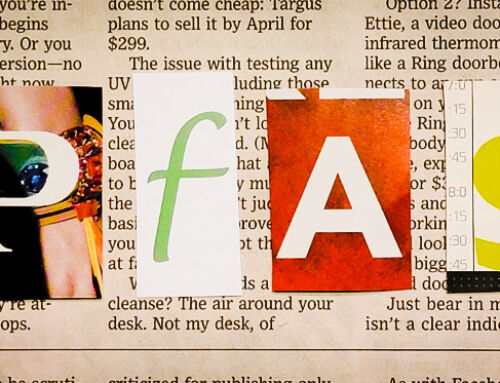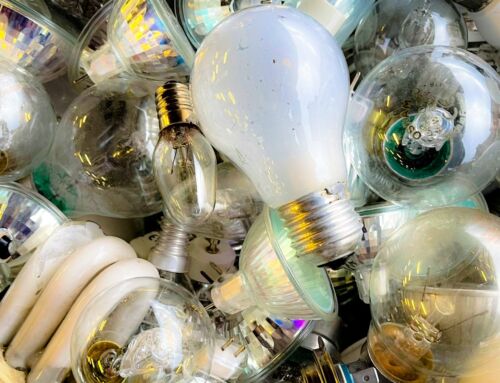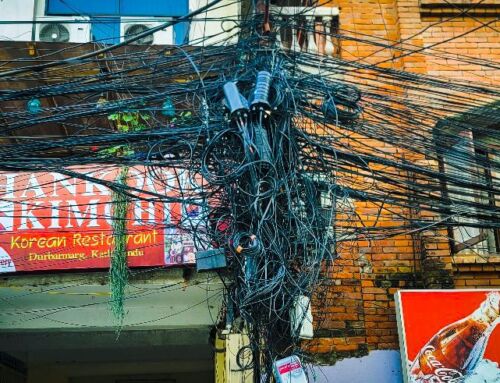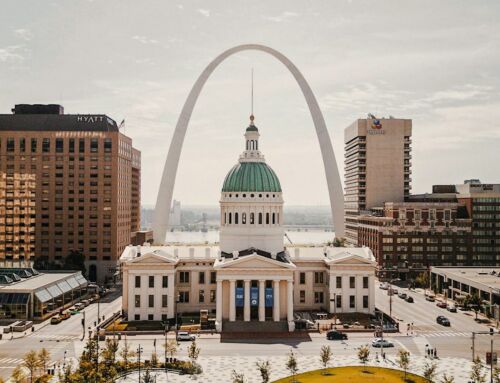View by Topic
Recent Articles
-
EPA Designates PFOA and PFOS as Hazardous Substances under Superfund LawSaturday, April 20th, 2024
-
Federal Government Finalizes New Efficiency Standards for LightbulbsSaturday, April 13th, 2024
-
2024 IECC is Final After Addressing Preemption IssuesSaturday, April 6th, 2024
-
Settlement Portends Broad Failure in Attempts to Ban Natural GasSaturday, March 30th, 2024
-
SEC Climate Disclosure Rule Stay and Venue Now in the 8th CircuitSaturday, March 23rd, 2024
View by Month/Year
“Green Building Law Update” Headlines
Recent Articles & News from
Stuart Kaplow’s blog
at GreenBuildingLawUpdate.com
- EPA Takes Action: PFOA and PFOS Now Hazardous Substances Under Superfund Law April 21, 2024
- Shedding Light on the Future: The Evolution of Lightbulbs in the Wake of New Energy Efficiency Standards April 14, 2024
- 2024 International Energy Conservation Code is Final After Addressing Preemption April 7, 2024
- Settlement Portends Broad Failure in Attempts to Ban Natural Gas March 31, 2024
Subscribe to the Green Building Law Update!
Stuart Kaplow brings his expertise and extensive experience to the table with his unique digital publication, "Green Building Law Update". Subscribers receive regular updates to keep them informed about important issues surrounding Environmental Law, Green Building & Real Estate Law, as well as the emerging demand for Environmental Social Governance (ESG).
Get fresh content through the lense of Stuart Kaplow's cutting-edge expertise, innovative commentary and insider perspective. Don't miss another issue! Subscribe below.
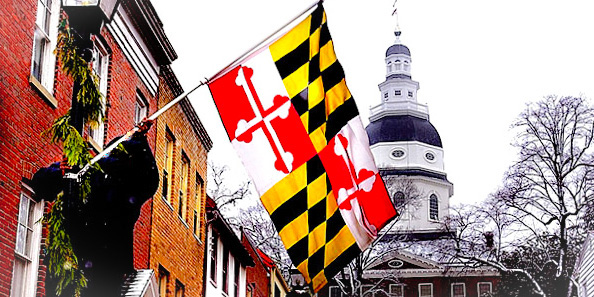
Maryland Enacts New Environmental Laws in 2020
The 440th session of the Maryland General Assembly commenced on January 8, 2020. The 90 day session was, for the first time since the Civil War cut short, ending three weeks early (.. of note, the predecessor, appointed not elected, General Assembly of Maryland was first called together in 1635 in St. Mary’s for 90 days).
Despite the abridged session, the legislature acted on 1,664 House bills and 12 resolutions and 1,081 Senate bills and 6 resolutions with 667 bills passing both chambers before they adjourned sine die on March 18, 2020. Surprising few of those bills that passed involved environmental matters. The Governor has until the 30th day after presentment to sign or veto bills and given the impact of the coronavirus pandemic any legislation that requires new State spending will no doubt receive heightened scrutiny.
This is a review of key environmental legislation enacted this session.
Maryland has been described as having more pages of environmental statutes and regulations on a per capita basis than any other state. This year of a short legislative session no doubt saved many Marylanders from additional tyranny by the majority (i.e., the overwhelming number of environmental bills that were introduced did not pass), but the new laws compiled below add to the environmental regulatory scheme. Savvy players in the environmental industrial complex will find business opportunities to lead and profit in environmental matters, including opportunities advantaged by these newly enacted laws.
And to keep this compilation of new environmental in context, this April 22nd is the 50th anniversary of Earth Day:
SB 007 alters the membership of the Maryland Green Building Council by removing the Secretary of Housing and Community Development or designee and adding the Secretary of Labor or designee. This bill is a ministerial response to the fact that in 2018 the State’s Building Codes Administration moved to the Department of Labor.
SB 300 was VETOED by the Governor on May 7, 2020. The bill as passed would have made Maryland the first state in the continental U.S. to legislatively prohibit using chlorpyrifos in the State, including insecticides that contain chlorpyrifos and seeds that have been treated with chlorpyrifos, beginning December 31, 2020. The bill also prohibited aerial application of chlorpyrifos beginning October 1, 2020. The bill’s prohibition on the use of chlorpyrifos, the most widely used insecticide on agricultural products in the nation, was expected to have had a meaningful economic impact on Maryland agriculture and related businesses in the State. Maryland was already moving to a somewhat more limited regulatory response that will apparently now move forward.
HB 161 a departmental bill codifies (and expands) the requirement that each place of business that employs a person to apply fertilizer to property (including State property) that is not used for agricultural purposes have a professional fertilizer on staff who has obtained a fertilizer application certification and be licensed annually by the Maryland Department of Agriculture. In the name of reducing nitrogen, phosphorus, and sediment loading in the Chesapeake Bay, the bill expands licensing of the non English proficient immigrant heavy landscaping industry in fertilizing turf and flower beds across the State.
HB 177 modifies dam safety laws related to the Maryland Department of the Environment’s authority to respond to an emergency situation related to a “water infrastructure asset,” defined as a reservoir, dam, or any other waterway construction. A water infrastructure “asset owner” must reimburse MDE for costs incurred, and a lien must be established for nonpayment under specified circumstances. The bill also establishes liability protections for MDE and the State.
HB 619 Maryland law and regulations are today silent with regard to PFAS including PFOA. This bill purports to prohibit, beginning October 1, 2021, the use of “Class B fire-fighting foam” that contains “PFAS chemicals” for testing purposes or training purposes, that is, non PFAS containing foam is to be used for training, but of import the bill continues to permit PFAS in Maryland when in anything other than fire-fighting foam. There is an express ‘get out of jail free’ provision for Baltimore-Washington International Airport (but not for other civilian or military airports, because they did not know to ask to be exempted?), presumably to allow Federally mandated fire-fighting training at BWI, but the bill does not restrict the manufacture, sale, distribution, discharge, or use of Class B fire-fighting foam that contains PFAS chemicals in fire-fighting or fire prevention operations. Nor does it in any other way prohibit or even regulate PFAS chemicals in other uses. It has been suggested this legislation will put in jeopardy claims within Maryland in the national fire-fighting foam multidistrict litigation in South Carolina. Adverse health impacts from PFAS are being policed by the marketplace in the courts, including enforcing existing tort law, and this legislation that began as an earnest and good effort to protect Baltimore County firefighters, is now bad statewide environmental public policy that will also have the effect of costing the Maryland taxpayers Millions of dollars in damages.
SB 420 / HB 581 is substantially the same as HB 619.
HB 1442 /SB 840 alters the definition of “expanded polystyrene food service product” to exclude cartons for eggs that are shipped into the State for packaging or cartons of eggs that have been packaged within the State for sale within the State. As a result, these egg cartons are no longer subject to restrictions on the sale of expanded polystyrene food service products that take effect July 1, 2020.
HB 1035 / SB 495 expands the authorized uses of the Bay Restoration Fund’s Septics Account to include specified costs associated with connecting a property using an on-site sewage disposal system (commonly referred to as a septic system) to an existing municipal wastewater facility that has signed a funding agreement with the Maryland Department of the Environment and is under construction to achieve, enhanced nutrient removal or biological nutrient removal level treatment.
HB 1479 updates the Public Local Laws of Calvert County to include requirements for the preparation and recordation of subdivision plats in the County. Among other things, a subdivision plat that is intended to be recorded must require the property owner, or a successor or assign of the owner, to grant a perpetual stormwater management easement to the County.
SB 018 alters the membership of the 1994 Lead Poisoning Prevention Commission and changes and adds topics on which the commission may appoint a subcommittee. The bill also repeals and amends several obsolete provisions that require the commission to develop recommendations and standards and to study and collect information on various topics related to lead, lead poisoning, and remediation and repeals an obsolete provision that requires the Maryland Department of the Environment to consult with the commission on establishing specified standards.
SB 074 a departmental bill explicitly establishes the Marine Contractors Licensing Board as a unit in the Maryland Department of the Environment; amends the definition of “marine contractor services” to exclude specified activities located over State or private tidal wetlands; and authorizes the board to establish, by regulation, separate license categories that specify the marine contractor services that each license authorizes a licensee to perform.
SB 242 repeals current law authorizing the Department of Natural Resources to issue a license to a person or a group to feed waterfowl on land owned or operated by the person or group, or in waters within 300 yards of a shoreline. DNR advises that it has not issued a license to feed waterfowl in more than 20 years.
HB 662 a departmental bill codifies and implements the requirements of the Governor’s Executive Order 01.01.2019.08, which requires that the State reduce energy consumption in State-owned buildings by 10% by 2029 compared with a fiscal 2018 baseline. It also institutes new requirements for State agencies that plan, pursue, and enter into an energy performance contract. Finally, it repeals obsolete provisions related to energy conservation in State buildings.
HB 980 / SB 775 alters the energy storage system tax credit by increasing to $150,000 the maximum tax credit (up from $75,000) that may be claimed for a system installed on commercial property (the $5,000 residential cap remains) and specifying that a person that owns or pays for the installation of a system that supplies electrical energy intended for use on a residential or commercial property may claim the tax credit, funded at $750,000 annually.
HB 1029 / SB 224 alters the allocation of funds for the Clean Energy Account within the Maryland Employment Advancement Right Now program. It reduces funding for pre-apprenticeship and apprenticeship programs to provide funding for the recruitment of individuals to the pre-apprenticeship jobs training programs and the registered apprenticeship jobs training programs. The bill adds energy efficiency and geothermal careers as permissible career fields for youth apprenticeship jobs training programs and the registered apprenticeship jobs training programs under EARN, along with solar and wind sectors as specified under current law.
SB 281 / HB 336 an Administration bill requires the Maryland Department of the Environment to waive application fees for the Voluntary Cleanup Program for a qualifying applicant who intends to use eligible property to generate clean or renewable energy and expands the definition of “eligible property,” as it applies to VCP to include those listed on the Superfund Enterprise Management System. The bill also exempts specified public-private partnerships (P3s) formed for the generation of clean or renewable energy from the public service company franchise tax.
2019 HB 720 / override of gubernatorial veto. The bill reestablishes the Oyster Advisory Commission and requires the Department of Natural Resources and the commission, in coordination with the University of Maryland Center for Environmental Science, develop a package of consensus recommendations for enhancing and implementing the fishery management plan for oysters. DNR must implement the 2019 Fishery Management Plan for Oysters and must not reduce or alter boundaries of existing oyster sanctuaries until a fisheries management plan has been developed based on the consensus recommendations.
The Maryland General Assembly may convene in special session in late May 2020, but will convene in regular session on Wednesday, January 13, 2021 at 12:00 p.m.
Thank you to the Maryland Department of Legislative Services for the information provided above.





